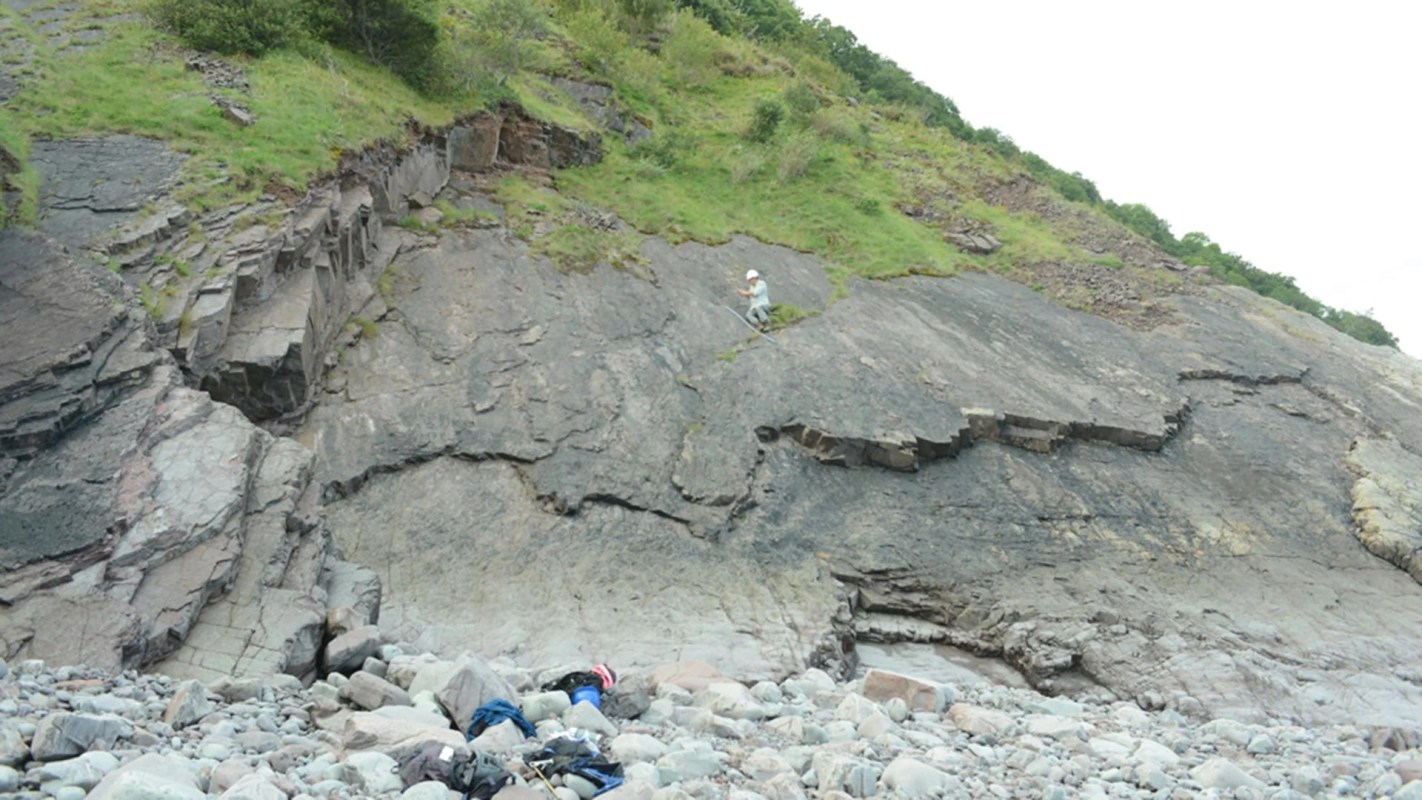Researchers from the United Kingdom have discovered the world's oldest fossilized forest, giving a glimpse into how life on the planet developed.
The fossils were found on cliff sides in Minehead off the Somerset coast in England, and scientists from the Universities of Cambridge and Cardiff have dated the forest back between 419 million and 358 million years old.
The forest was made up of Calamophyton trees, an early form of today's palm trees. Instead of leaves, they were covered in twig-like structures, and their trunks were hollow in the center.
Standing between two and four meters tall (about 6.5 to 13 feet), the trees would shed those twigs, offering habitats for various invertebrates on the forest floor.
"This was a pretty weird forest – not like any forest you would see today," said Professor Neil Davies of Cambridge's Department of Earth Sciences. "There wasn't any undergrowth to speak of and grass hadn't yet appeared, but there were lots of twigs dropped by these densely-packed trees, which had a big effect on the landscape."
Researchers say the fossils provide an insight into how trees helped stabilize riverbanks and coastlines, with this particular forest found on the south bank of the Bristol Channel, an inlet of the Atlantic Ocean that separates southern England from Wales.
Save $10,000 on solar panels without even sharing your phone number Want to go solar but not sure who to trust? EnergySage has your back with free and transparent quotes from fully vetted providers that can help you save as much as $10k on installation. To get started, just answer a few questions about your home — no phone number required. Within a day or two, EnergySage will email you the best local options for your needs, and their expert advisers can help you compare quotes and pick a winner. |
Watch now: Solar-powered boats from the Honnold Foundation are making a difference in the Amazon
"The evidence contained in these fossils preserves a key stage in Earth's development, when rivers started to operate in a fundamentally different way than they had before, becoming the great erosive force they are today," Davies added.
The previous record-holder for the world's oldest fossilized forest can be found in the state of New York. According to the BBC, the 386 million-year-old forest in Cairo is home to Cladoxylopsids and Archaeopteris tree species.
Both forests would have been thriving in the Devonian period, which is when life is thought to have begun to make a home on land. Millions of years ago, these forests would have provided a safe environment for new land animals to grow, much like the forests of today do.
According to the United Nations, modern forests feature 60,000 different tree species, 80% of amphibian species, 75% of bird species, and 68% of mammal species.
TCD Picks » Upway Spotlight
💡Upway makes it easy to find discounts of up to 60% on premium e-bike brands
But unlike in the Devonian period, trees now also play a role in cleaning the air of human-caused pollution, sucking in harmful gases that would otherwise contribute to global heating and then expelling clean oxygen.
Forests are hugely important to life on the planet — as they have been for millions of years — which is why it's important to support businesses that are committed to avoiding deforestation. This is particularly prominent in the food industry, which often clears land for agricultural production.
Join our free newsletter for weekly updates on the coolest innovations improving our lives and saving our planet.















